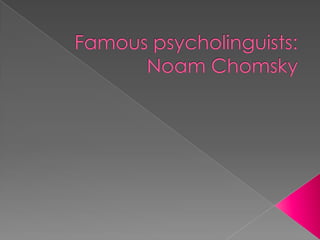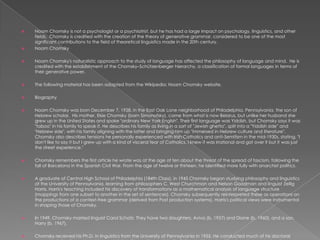Noam Chomsky is an influential American linguist known for his theory of generative grammar. He proposed that humans possess an innate, universal grammar that allows children to learn any language with minimal exposure. Chomsky also developed the principles and parameters approach, which argues that all human languages share a set of grammatical principles determined by universal grammar, with variations arising from parameter settings in the brain. His work has profoundly shaped the fields of linguistics and cognitive science.



